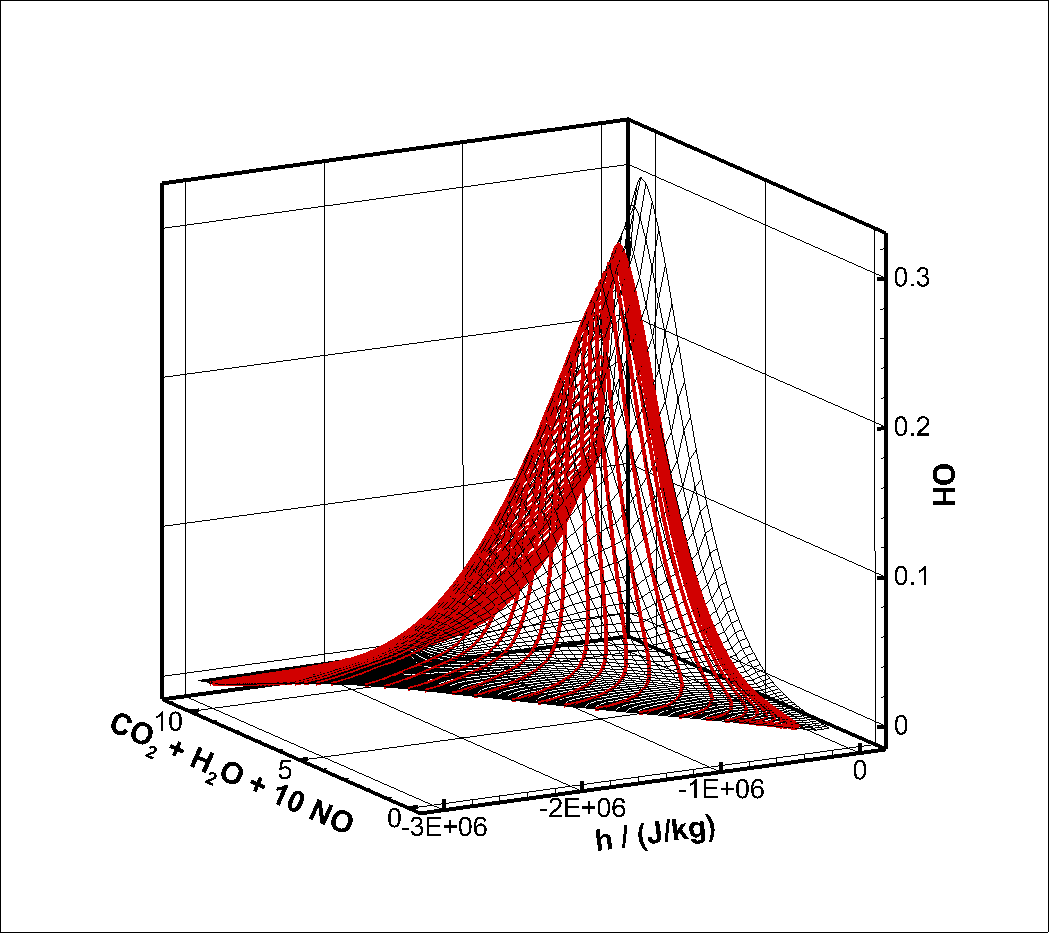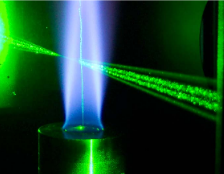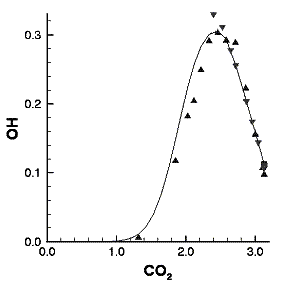


Summary
Aspects such as resource conservation, increasing tightening of legislation regarding pollutant minimization in combustion processes, and economic criteria are the motivations for ITT's research activities to improve the often oversimplified model assumptions for many kinetically controlled aspects in energy conversion processes, such as pollutant formation or turbulence-chemistry interaction. To achieve this, sub-models are developed based on detailed experiments, which then allow more realistic predictions (e.g. through numerical simulations) in technical applications.
Reactive flows are characterized by a complex interplay of flow, chemical reaction, and molecular transport. They can be numerically modeled by solving the underlying conservation equations for mass, momentum, energy, and species mass (partial differential equation system). The modeling of technical processes is complicated by the fact that the characteristic time, length, and velocity scales differ by several orders of magnitude (time scales of chemical reactions in the nanosecond to second range, flame front thickness smaller than 1mm, system dimensions possibly several meters, etc.). Direct numerical simulation of technical systems with resolution of the smallest scales is therefore not possible even with the fastest available supercomputers. Therefore, hierarchical modeling approaches are used, where results from the simulation of detailed systems (e.g. vortices interacting with flame fronts) are specifically used for the development of models for the simulation of technical systems. The work at ITT therefore covers the entire range of numerical simulation, from detailed simulations to the modeling of technical combustion systems.

